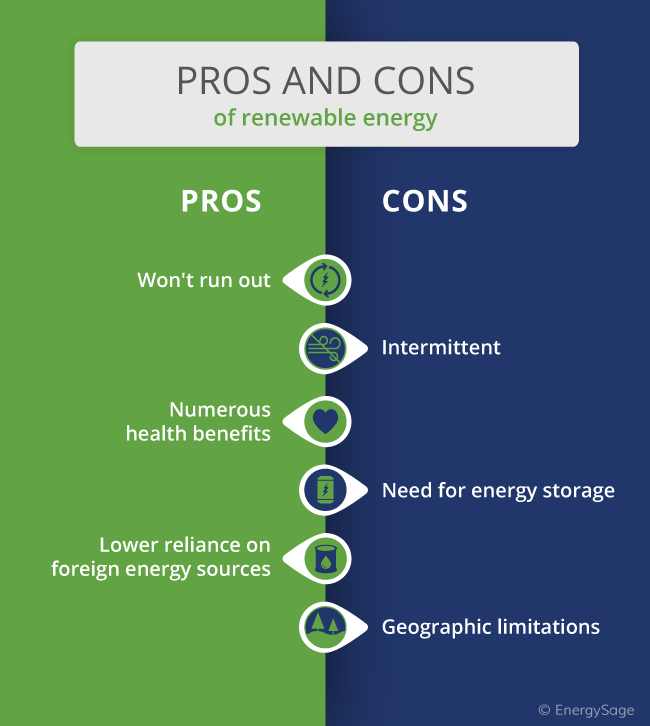Burning biomass for generating electricity has some appeal as a means of indirectly using solar energy for power.
Two advantages of using renewable energy to generate electricity.
Geothermal power hydropower biomass and tidal power are additional forms of renewable energy that produce power for our planet right now.
The difficulty is achieving the technology.
It is a clean form of energy to use.
There are loads of awesome advantages of renewable energy like the fact it will never run out.
Programs like scotland s saltire prize.
Depending upon the type of renewable energy being used positive gains can be expected between 5 25 years with most options.
However the logistics and overall energy balance may defeat it in that a lot of energy.
Renewable energy is energy that comes from sources that replenish themselves over short periods of time.
Hydroelectric power is a domestic source of energy allowing each state to produce their own energy without being reliant on international fuel sources.
Two common examples of this type of energy are solar power and wind power.
Although renewable energy is built on an infrastructure that uses fossil fuels the emissions cost savings of renewables occurs quite rapidly.
The primary advantage of renewable energy is that fewer potentially harmful emissions are released into the atmosphere.
The cost of generating electricity from wind dropped 66 percent between 2009 and 2016.
For this reason many policy experts and scientists advocate renewable energy sources over traditional fossil fuels.
Moreover the costs of renewable energy technologies have declined steadily and are projected to drop even more.
The energy generated through hydropower relies on the water cycle which is driven by the sun making it a renewable power source making it a more reliable and affordable source than fossil.
One disadvantage with renewable energy is that it is difficult to generate the quantities of electricity that are as large as those produced by traditional fossil fuel generators.
Marine energy projects currently generate an estimated 500 megawatts of power less than one percent of all renewables but the potential is far greater.
Costs will likely decline even further as.
It is driven particularly by eu energy policy which classifies it as renewable and ignores the co 2 emissions from burning the wood product.










